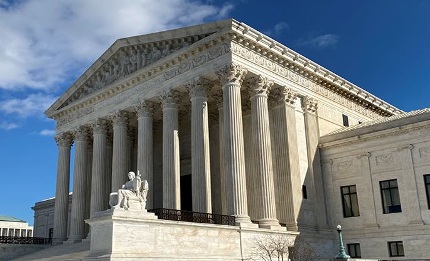Sports Betting
US Supreme Court Rejects Plea to Hear Florida Online Sports Betting Case

The U.S. Supreme Court has refused to take up a challenge to an agreement that provided the Seminole Tribe exclusive rights to operate online sports betting in Florida.
U.S. Supreme Court will allow Seminole Trible to continue providing online sports betting in Florida
The rejection was announced after the justices discussed the case during a private conference Thursday. Online sports betting will remain legal at the Native American reservation in the Sunshine State after relaunching on Nov. 7, 2023.
“The Seminole Tribe of Florida applauds today’s decision by the U.S. Supreme Court to decline consideration of the case involving the Tribe’s Gaming Compact with the State of Florida,” Gary Bitner, a spokesperson for the Tribe, said Monday.
“It means members of the Seminole Tribe and all Floridians can count on a bright future made possible by the Compact.”
Additionally, the Seminole Tribe achieved its monopoly on online sports betting in Florida under a gaming deal, called a compact, with Gov. Ron DeSantis in 2021.
This agreement requires that all online sports betting must take place on tribal lands since the servers are located there. The Seminole Tribe was never in violation of a federal law because online wagering through the casino has been treated as occurring “exclusively” on tribal lands.
Petition for certiorari was filed by West Flagler Associates, Bonita-Fort Myers Corporation
“Thus, the Compact unambiguously authorizes the Tribe to offer online Sports Betting to persons located off Indian lands, and then ‘deems’ such gambling to be treated as if it occurred ‘exclusively’ on Indian lands,” states the firms’ Feb. 8 petition to the U.S. Supreme Court.
According to the court, Justice Brett Kavanaugh considered granting the petition for certiorari filed by West Flagler Associates and Bonita-Fort Myers Corporation.
Kavanaugh had previously made comments suggesting he saw merit in the case, adding that West Flagler and other gambling companies may have been treated unfairly because of the monopoly the state granted to the Tribe.
Furthermore, West Flagler’s attorneys had successfully made this argument to the U.S. District Court for D.C., which ruled in their favor on Nov. 22, 2021. The attorneys argued that the Department of the Interior violated a federal statute known as the Indian Gaming Regulatory Act.
However, an appeals court overturned the ruling last September.











